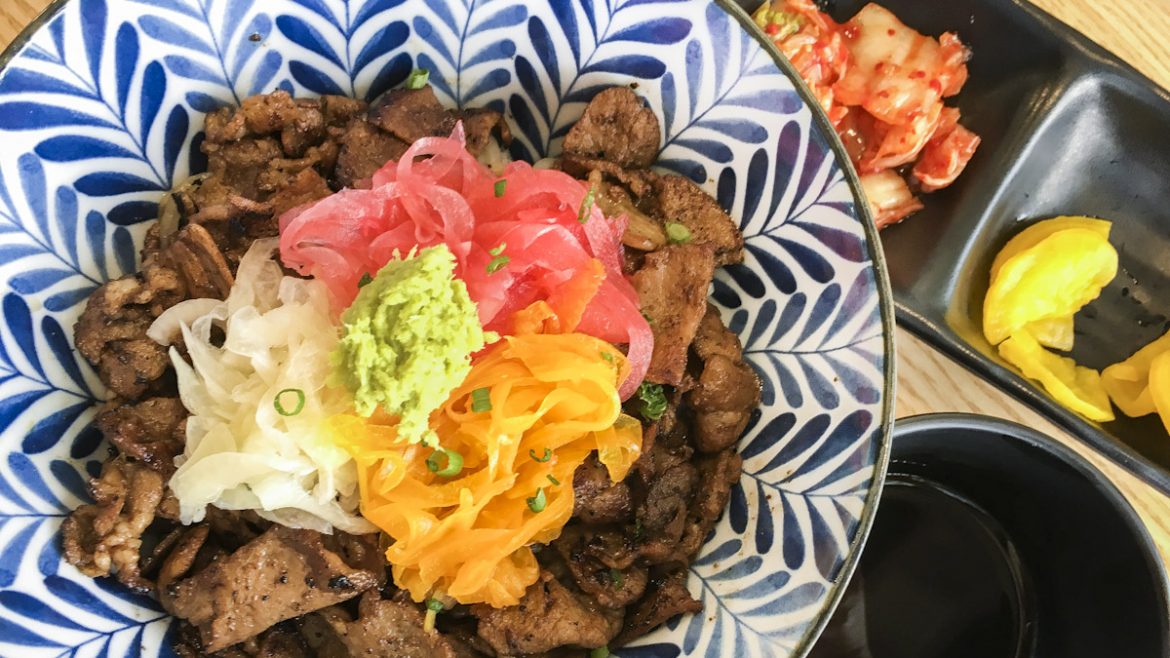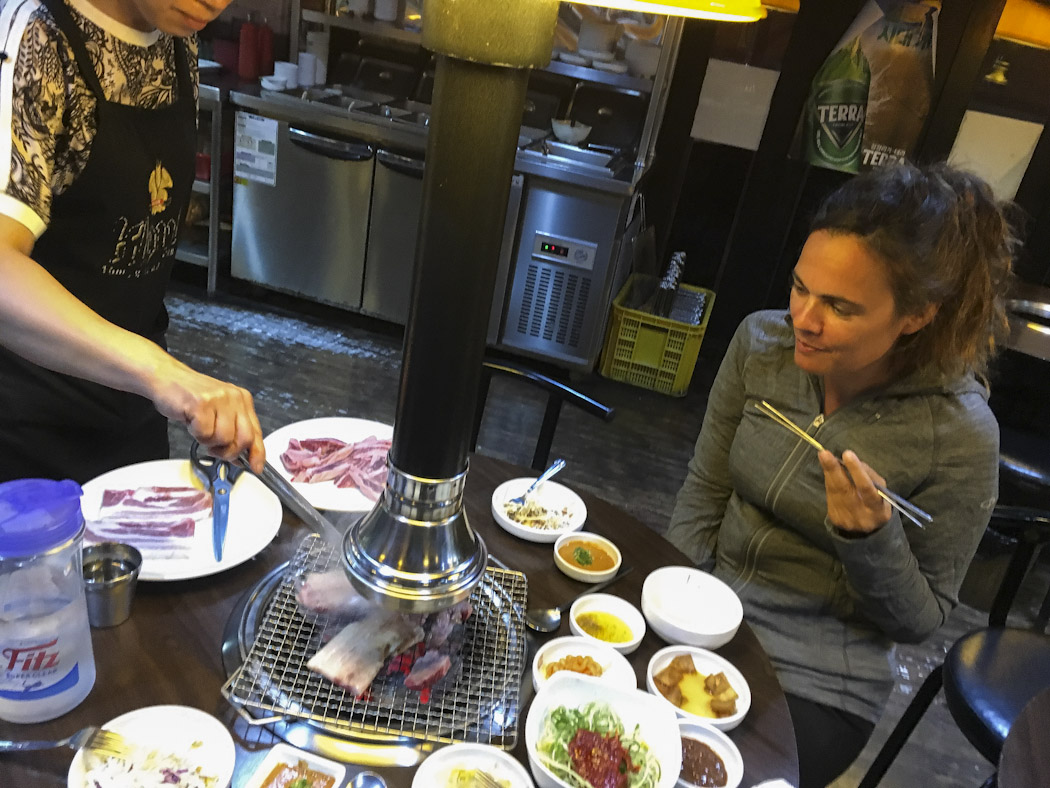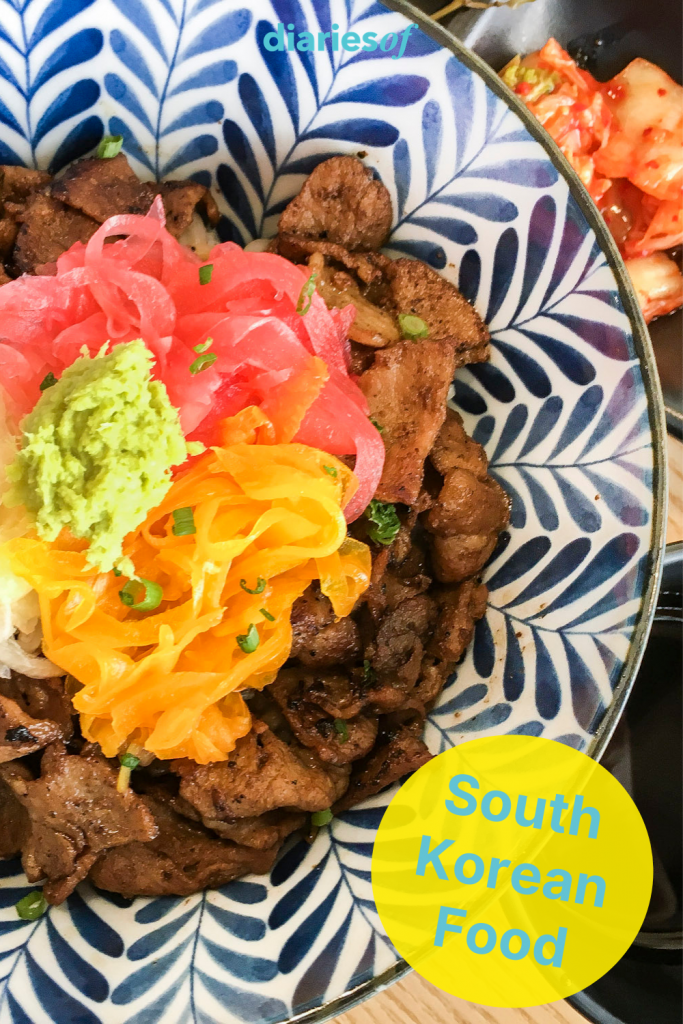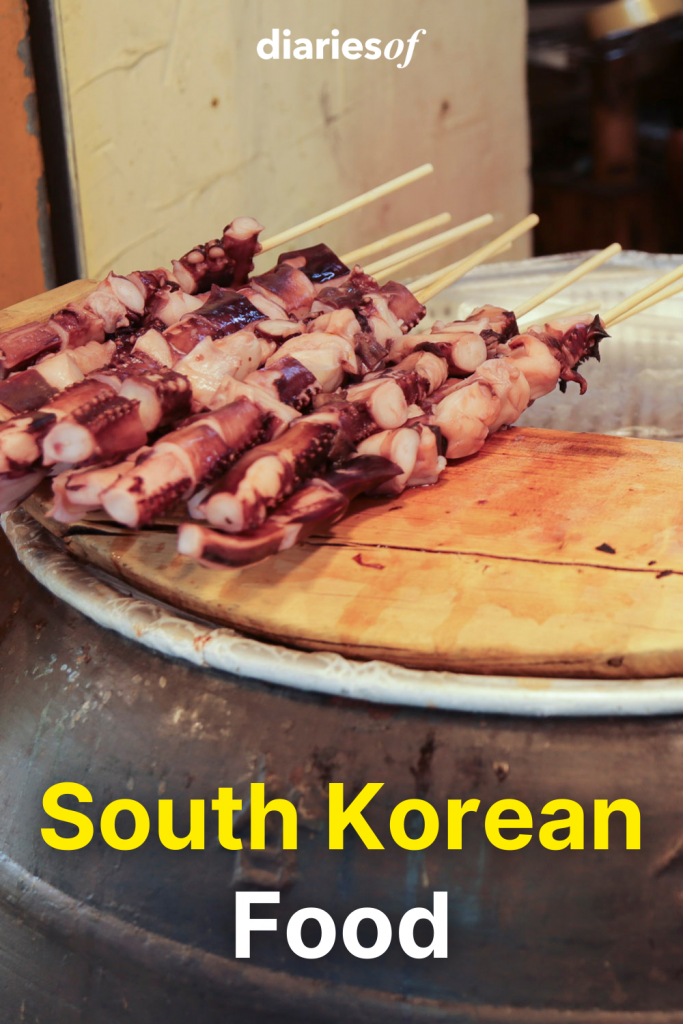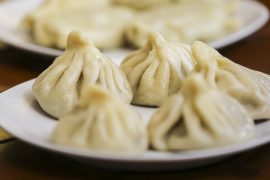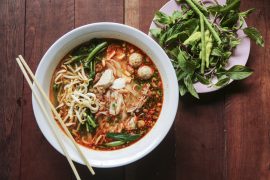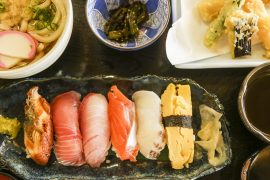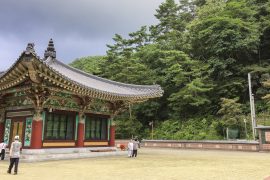Korean cuisine is so rich and diverse that we found it difficult to immediately understand what its staple food is. With time one understands that Korean food is largely based on rice, with many vegetables and also meat. This is a selection of South Korean food you need to try immediately.
Cooking seems to be part of the fun when it comes to eating Korean food, for that reason, many of the dishes are either entirely or partially cooked at the table. For us, it was an opportunity to see how some dishes are made, which ingredients are added and what secrets hide behind the savoury sauces.
1. Kimchi
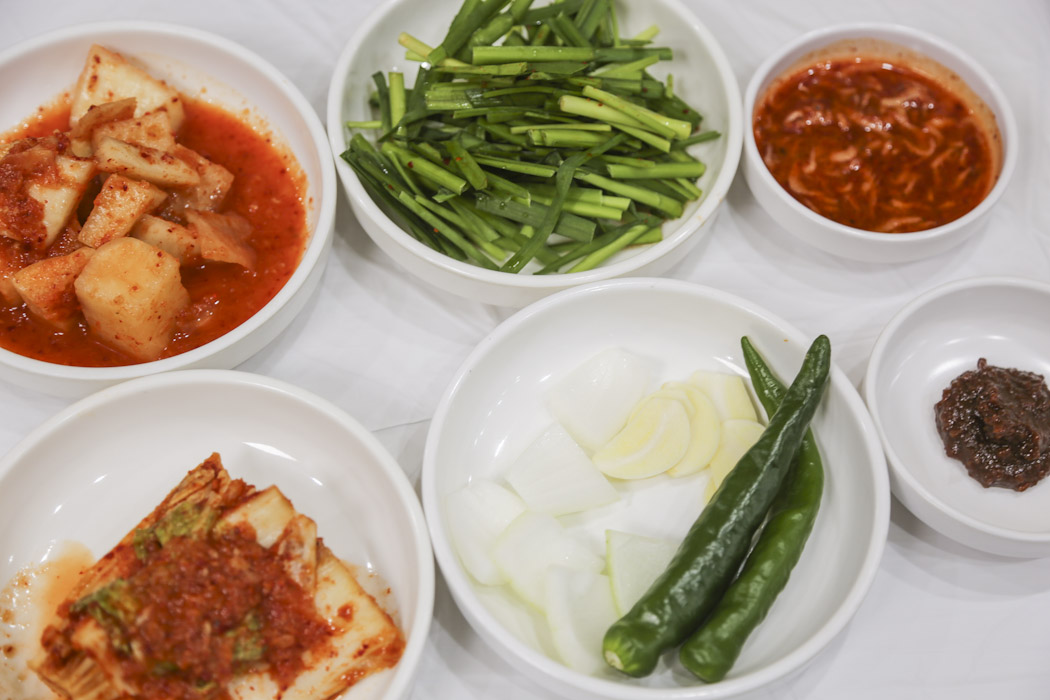
Kimchi is the real staple food of the Korean kitchen. It is tasty, it is spicy and above all this, it is healthy. Kimchi is present on any table (at restaurants as much as at home) as a side dish. It is a traditional recipe used as a means to conserve vegetables through fermentation. The most common Kimchi you will come across is the napa cabbage that after fermented gets seasoned with chilli powder garlic and ginger among other spices.
2. Bibimbap
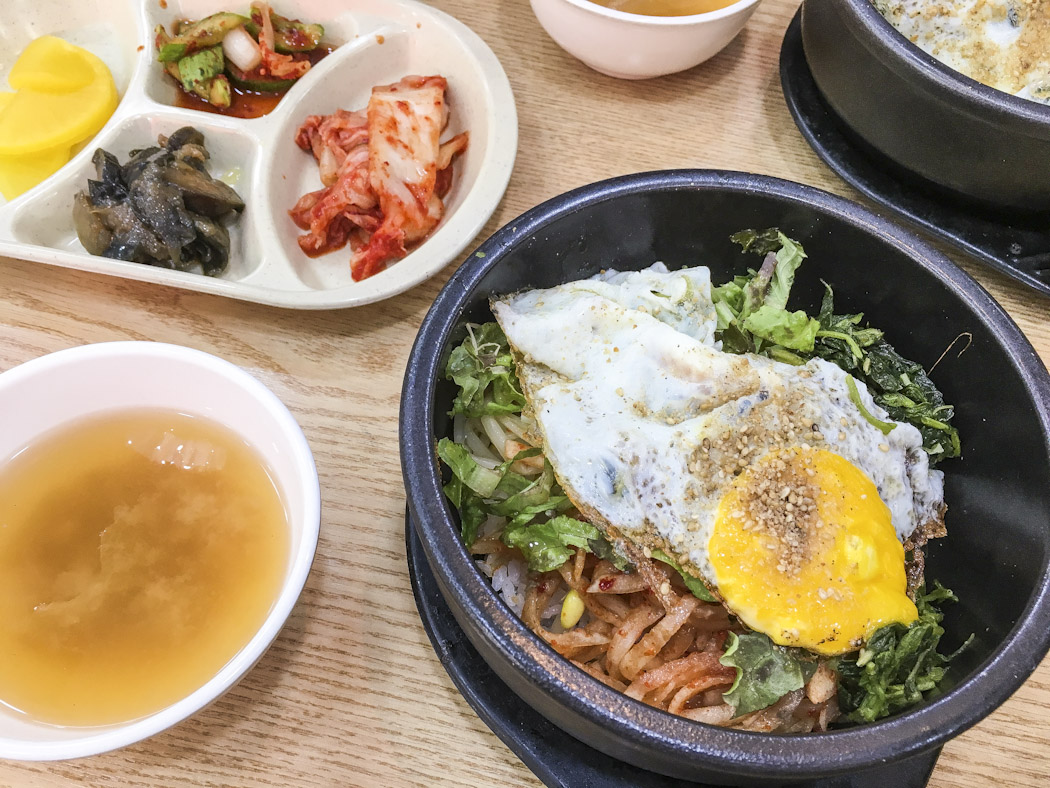
Even though you don’t immediately see it, Bibimbap is a rice salad. It comes to the dish already made, but, all the beautifully disposed vegetables on top (Bibimbap is usually a vegetarian dish) need to be mixed with the rice at the bottom, as well as with the egg and a dollop of chilli paste before eating. And if you don’t know that, someone will quickly show you how to do it before you start.
3. Bulgogi
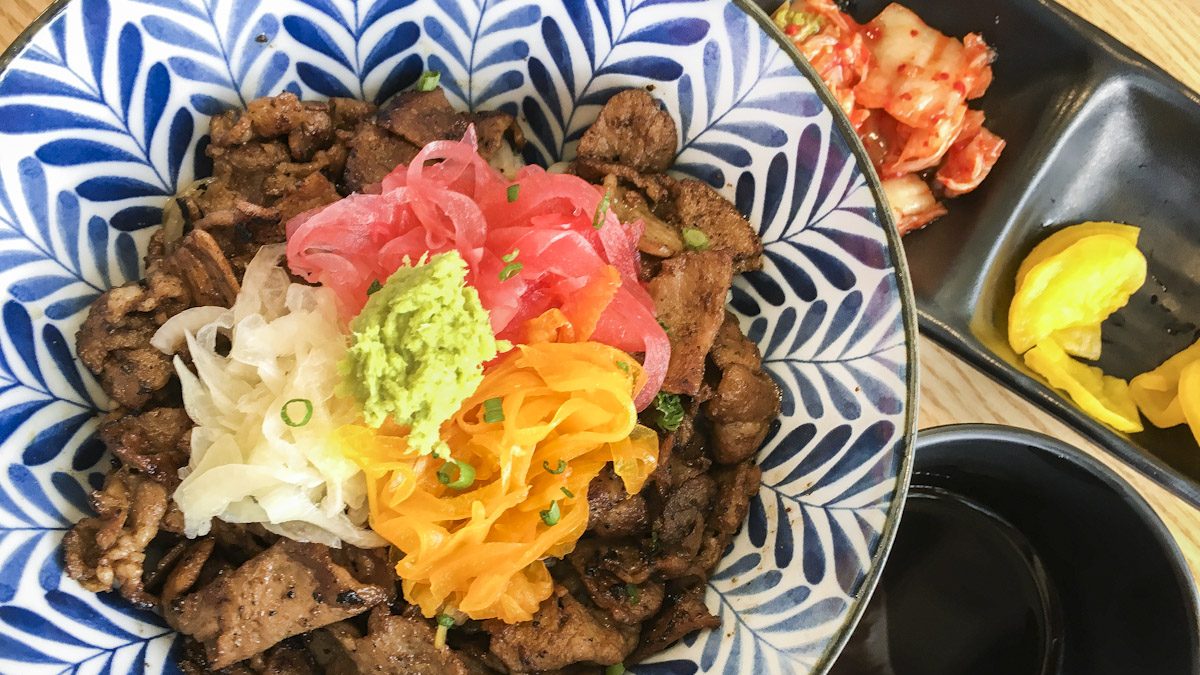
Bulgogi is another popular Korean dish. This dish consists of barbecued strips of meat (beef, chicken or pork), which are previously marinated in a sauce made of sweet soy sauce, sesame oil and garlic. In most restaurants, you will also get served white rice, and of course a lot of kimchi.
4. Samgyeopsal
This is one of the dishes that you cook yourself, at a special table with a barbecue in the middle. The waiter will bring plates with long strips of raw pork belly and lettuce leaves. You should grill the pork according to your taste and once the first strips meat is grilled, you cut the meat in smaller pieces and roll them in the lettuce leaves together with raw onion or kimchi garlic and different sauces made of soybean and chilli paste for flavour.
5. Jjin Mandu (steamed dumplings)
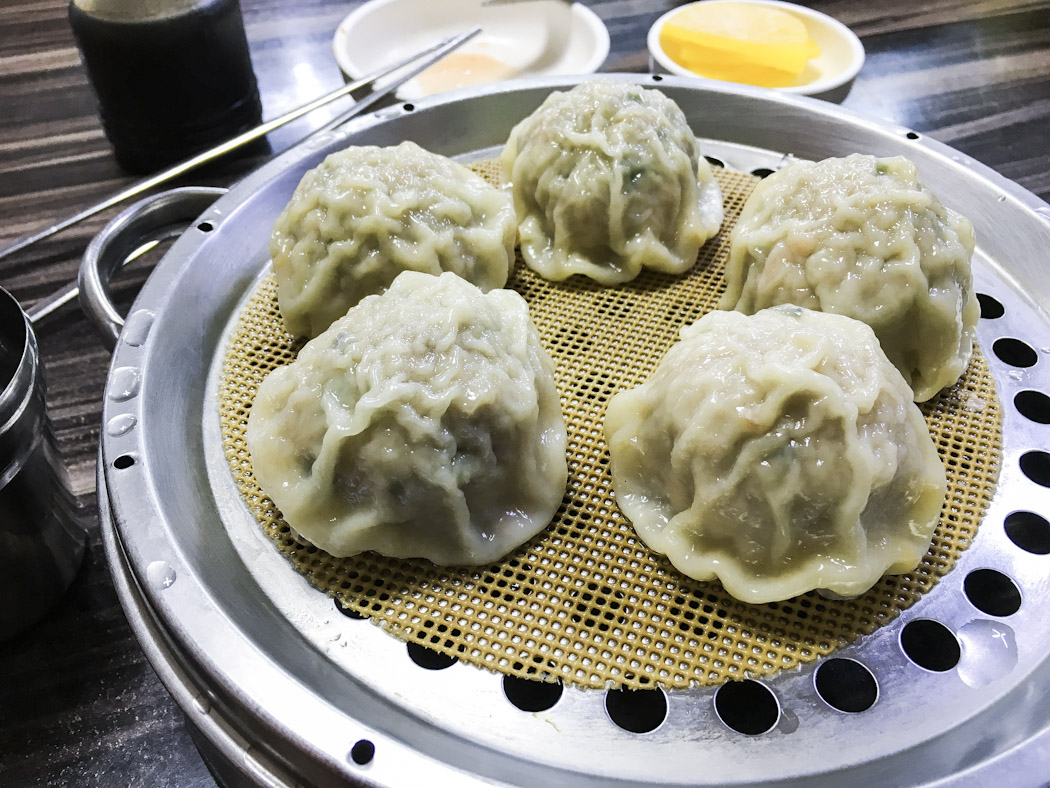
Dumplings are another popular dish in Korea and can be found in two main varieties: steamed (Jjin Mandu) or deep-fried (Yaki Mandu). Both are delicious versions of dumplings stuffed with different ingredients, such as pork, cabbage, onions and noodles. Don’t forget to dip them in the soy vinegar sauce.
6. Korean Sushi
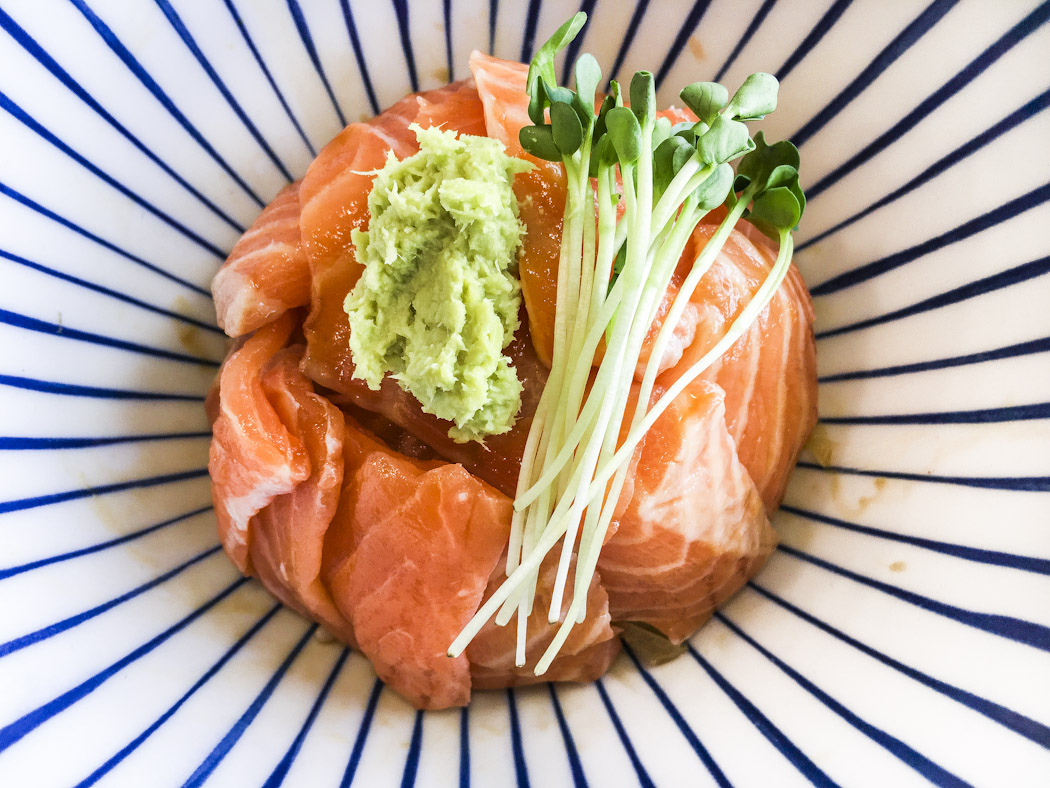
Korean Sushi chefs have mainly been trained by Japanese chefs. This means that the base of Korean sushi is the same as Japanese: it relies on fresh ingredients. But from that base, Koreans introduced Korean techniques and ingredients to their sushi preparations and came out with a particular way of enjoying sushi.
7. Chimaek (or should we say chicken and beer!)
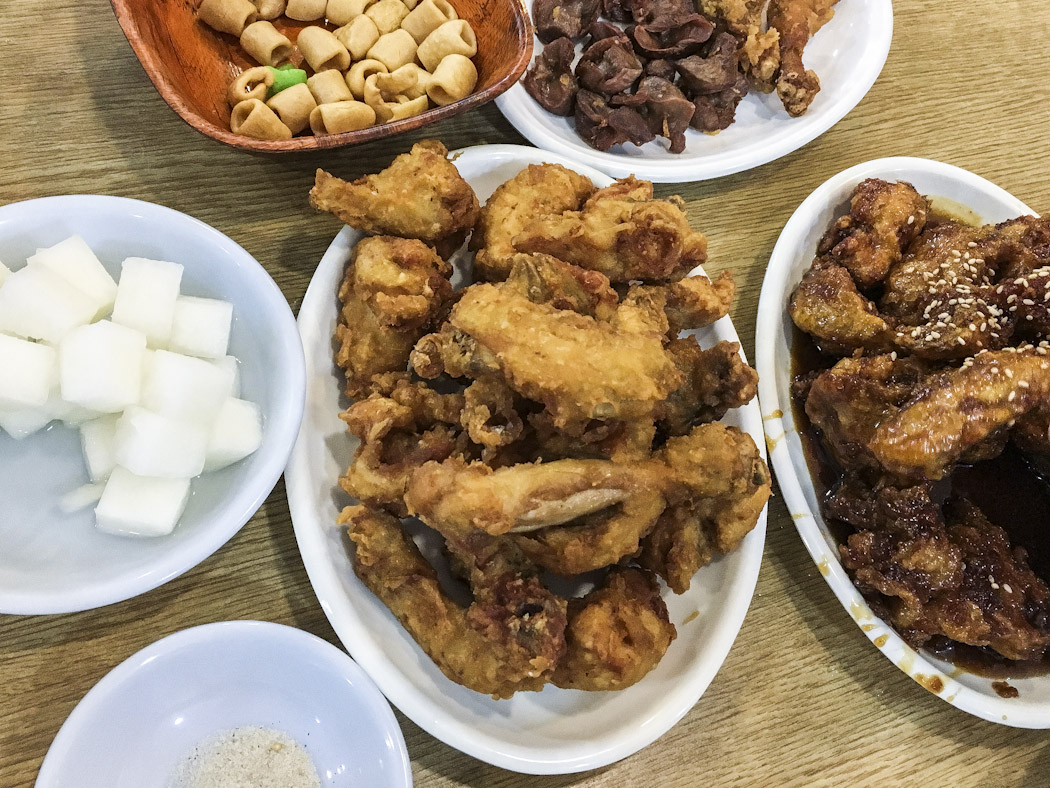
Chimaek is not really the name of a dish, it is the name of a combination of one specific food and one specific drink. The word itself is the agglutination of two words: chicken and beer (in Japanese maek). On weekends, the neighbourhoods with restaurants specialized in Chimaek get busy with crowds that don’t come necessarily for the food (that is simple and not really special) but for the atmosphere and to have ta beer with friends.
8. Naengmyeon
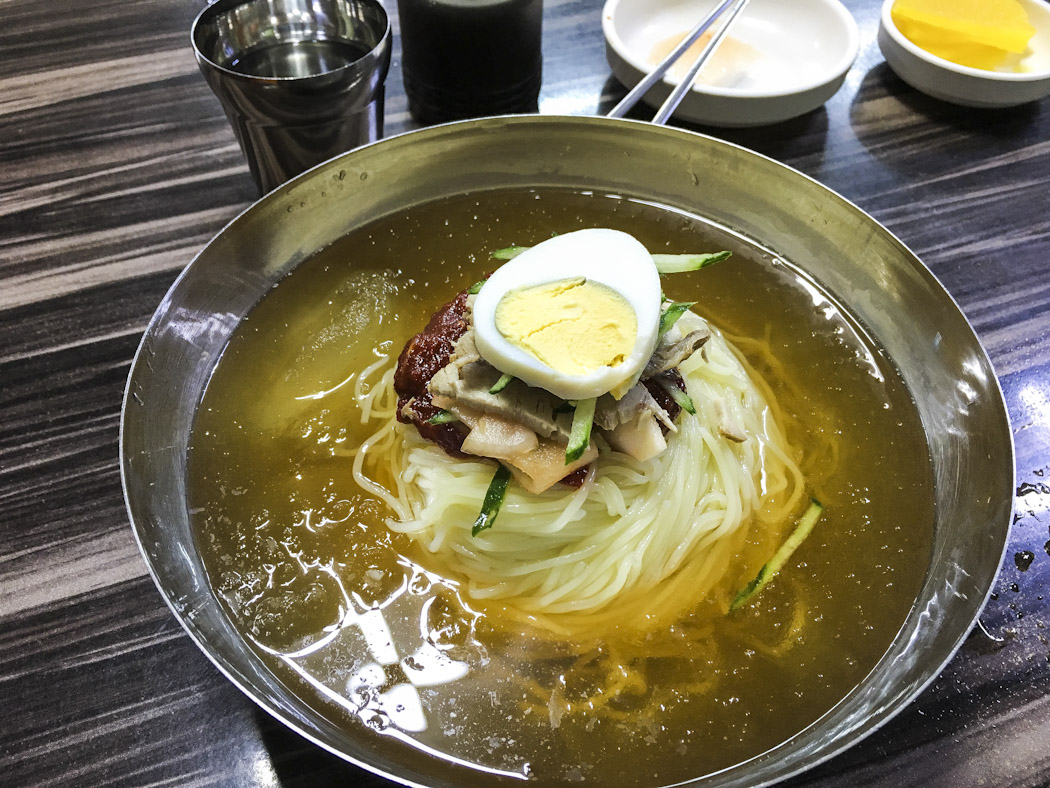
If you go to Korea in the summertime, you are likely to find this dish on every menu. This is a dish of cold buckwheat noodles, served in a soup made of…ice! It sounds strange, it looks even stranger, but it is actually tasty! The noodles are set over the ice, which is itself mixed with a kimchi broth at the bottom of the bowl. Then comes chunks of meat and cucumber, and on top of it a chilli sauce and half of a boiled egg.
9. Haejang-guk, the hangover soup
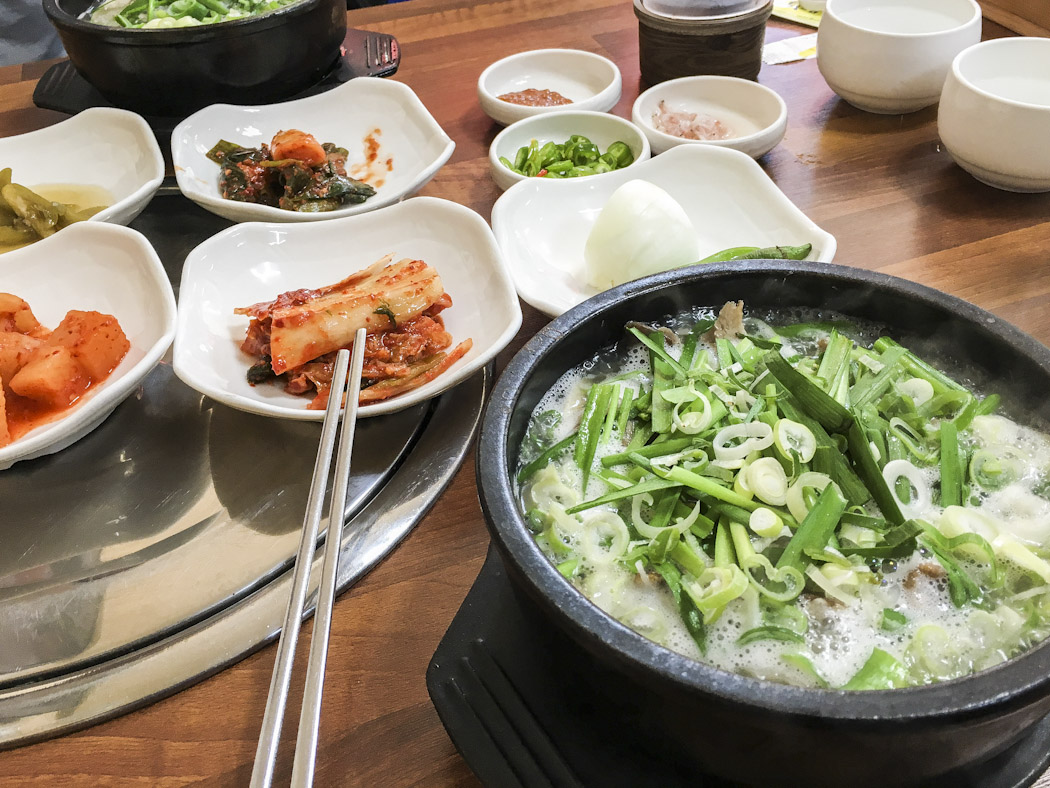
Several types of soup which consist of a broth with meat and a few vegetables are considered hangover soups in Korea. This should give a hint to the fact that Koreans like a good drink (the national drink is soju, a strong distilled alcohol similar to sake). The taste of meat is very strong, so it is really refreshing to have so many raw vegetables (mainly leek or chives) on top of the broth.
10. Mussels Stew
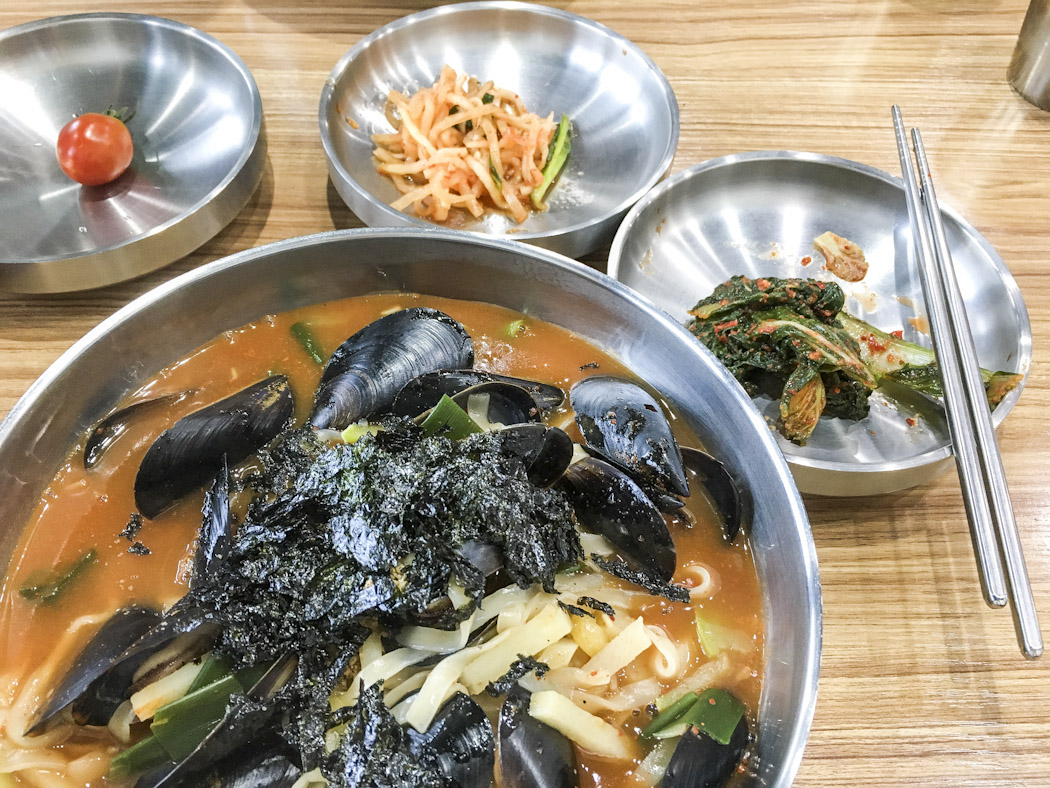
Considering Korea’s long ocean coast, it is not surprising that its kitchen includes a lot of fish and shellfish. It suffices to have a look at a fish market to understand that all kinds of shellfish are popular in the country. It is widely used in Korean’s cuisine for many different types of preparation. They can be used to prepare broth and served in soups and stews.
11. Korean Barbecue
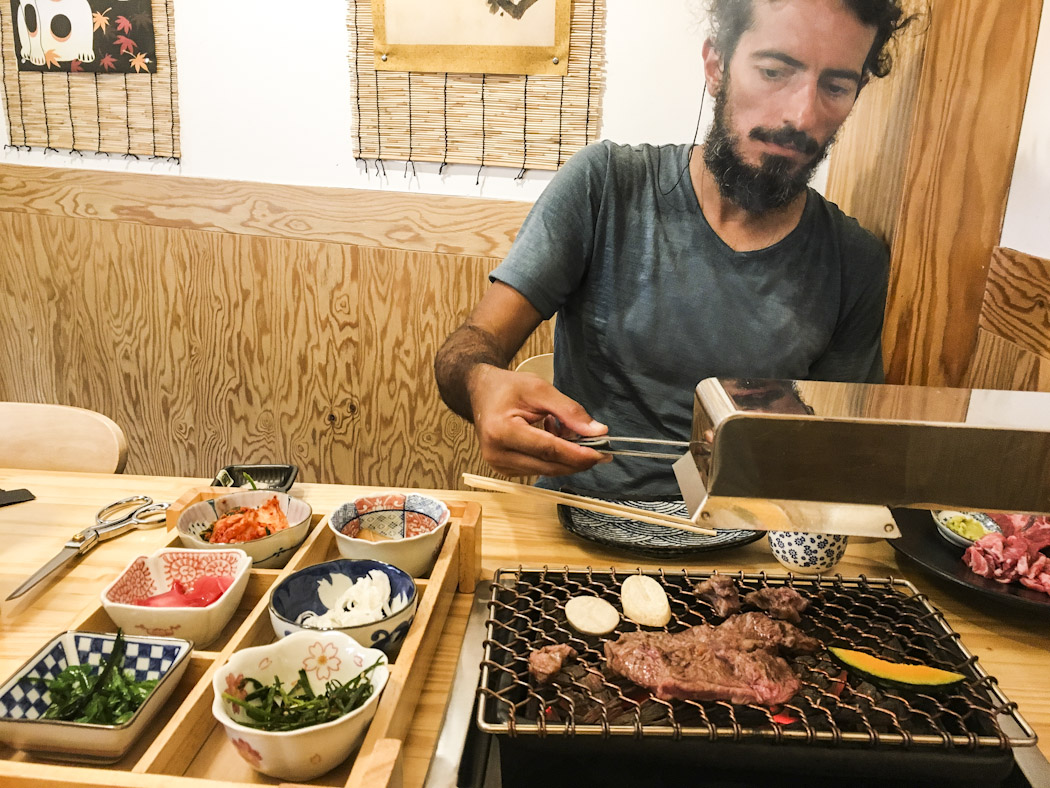
This is another dish that comes raw to the table. In the Korean barbecue, the meet is raw, and at the table you prepare the seasoning and the grilling. Meat is very tender and fleshy, which compensates for the small quantity.
12. Korean Udon
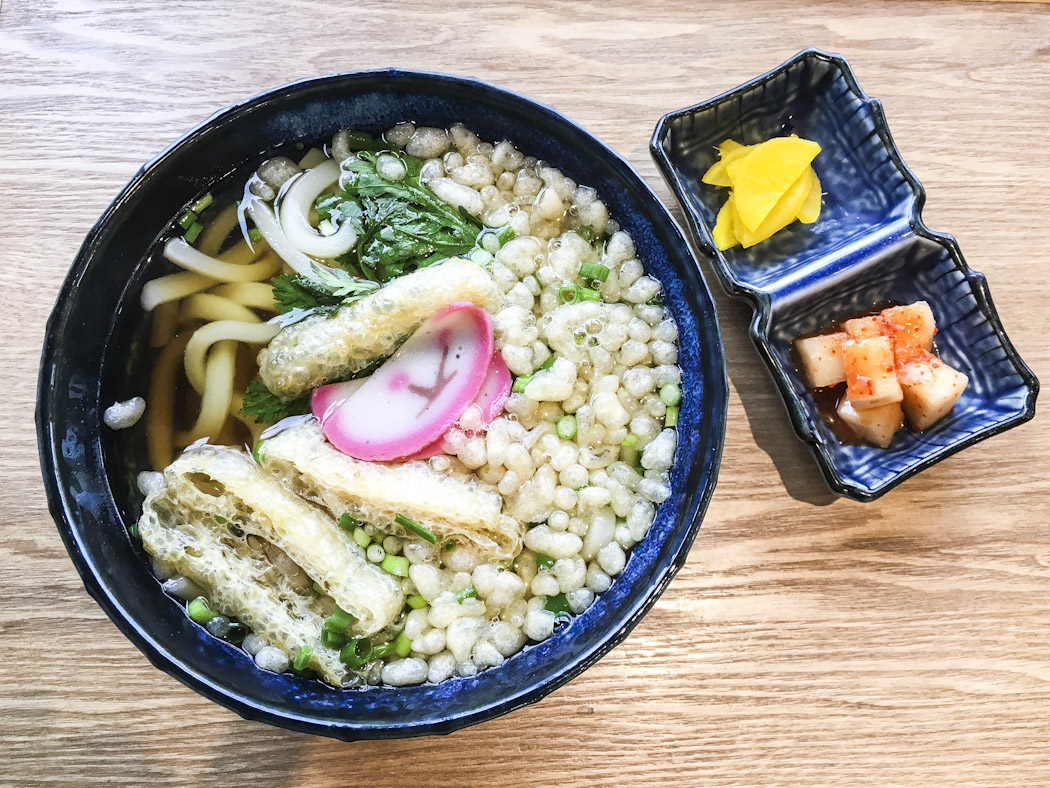
Udon refers to the wheat-based noodle that we see on this soup. It is usually thick and handmade. The broth in which it is served, is seasoned soy sauce and mirin. It is often topped with tempura or, as in this case, with fish cake and a type of deep-fried tofu pockets. The green on top is green onions.
Pin For Later
Click one of the images to save it on your Pinterest


